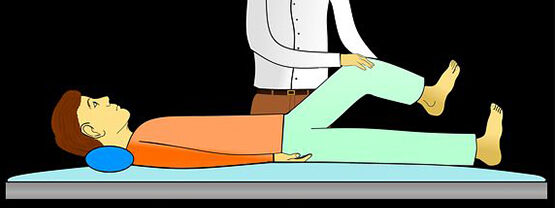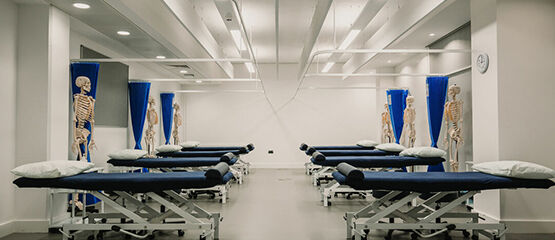Rheumatoid Arthritis can be a debilitating disease, of which still not much is known about what causes it. For Rheumatoid Arthritis Awareness Week, Jodie Bryant, Course Leader for our MSc (Pre-registration) Physiotherapy, has worked with patients with Rheumatoid Arthritis and so is ideally placed to explain this illness, how it impacts an individual and what to do if you think you may be affected.
This week, 13 - 19 September is Rheumatoid Arthritis Awareness Week. Rheumatoid Arthritis or RA is a long-term condition that causes patients pain, swelling and stiffness in their joints. The condition can affect multiple joints but mostly a patient’s hands, feet, ankles and wrists.
Rheumatoid arthritis is what is known as an ‘autoimmune disease’. This means that a patient’s immune system (which usually acts to fight infection) attacks the cells that line a patients joints by mistake, making the joints swollen, stiff and painful.
It's not clear what triggers this problem with the immune system. It seems from the evidence that females with a family history of RA who smoke are more at risk.
Patients should be strongly encouraged to see their GP if they have any pain, stiffness, swelling or deformities in their joints. There is no ‘one’ set test to diagnose RA but several important factors will be considered when making a diagnosis. A GP will likely complete some blood tests as well as a physical examination and possibly order scans and x-rays. They may also prescribe medications to help reduce inflammation and control pain. It is also likely patients will be referred to a specialist called a Rheumatologist for ongoing care.
Patients should also be referred to a Physiotherapist (like me). A Physiotherapist, along with the medical team, will be one of the multi-disciplinary team that will support a patient to manage their RA. A Physiotherapist will focus on supporting a patient with joint mobility, function, muscle strength and keeping independence. Several years ago I worked on a specialist rheumatology ward treating patients with RA. Patients would often come into hospital for a 2 week intensive rehabilitation programme. During this time the medical team would trial new medications and treatments and the therapy team would focus on building a patient’s strength, function and independence.

Currently there is no cure for RA but with early identification, treatment and support, the impact of the disease on patients can be managed very well. Several key lifestyle changes can really support the management of RA including stopping smoking, reducing any excess weight and becoming more active – under the supervision of a Physiotherapist or other exercise professional.
There are several excellent organisations that provide information to patients who have RA. Versus Arthritis have an excellent website and helpline available for patients.
- The Versus Arthritis Helpline - 0800 5200 520
- Stop smoking helpline - 0300 123 1044
Our MSc (Pre-registration) Physiotherapy programme supports students to learn about diseases such as RA, and develop clinical leadership knowledge and skills over three different practice areas: musculoskeletal, cardio respiratory and neurology. Practice placement experiences also ensure that they have sufficient opportunity to achieve the required practice competencies, so that they can practice as an autonomous newly qualified practitioner after successfully completing the course.
Jodie Bryant, Physiotherapist







